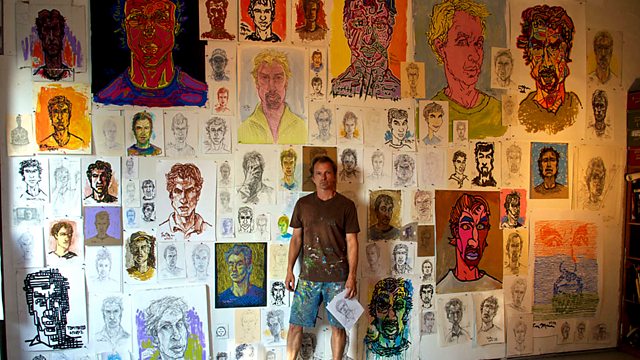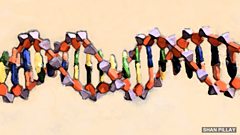A Very Long View
Tracking changes in our people’s lives over decades, generations and even millennia, with artist Tom Mosser, sociologist Alison Park and geneticist Eske Willerslew.
How good are we at making connections over time? Remembering our own pasts, or the way history has unfolded, or seeing the big patterns of development, invisible to the naked eye? This week on the Forum Bridget Kendall and guests focus on the long view: tracking the small changes which shape a person over a year, or a society over decades, or which alter the genetic make-up of humans over tens of thousands of years. With artist Tom Mosser, sociologist Alison Park and geneticist Eske Willerslew.
Photo: Artist Tom Mosser and his portrait collection (credit: Tom Mosser)
Last on
More episodes
Previous
Clip
-
![]()
Do you really know where your people came from?
Duration: 01:56
Tom Mosser
Tom Mosser created at least one self-portrait per day for
the entire year of 2012 and continued to Feb. 10th of 2013 to create a total of
406 works. Tom created the portraits
using both hands alternately or at the same time. He also created some using only the same
hand. Some of the works are quick
studies while others are larger and more elaborate works. He is repeating the
exercise in 2016.
And you can see some of Tom Mosser's portraits in the gallery on the right-hand side of this page.
Alison Park
Eske Willerslev
Sixty Second Idea to Change the World

Alison Park suggests that we should make time to sort
through the vast array of photo files on our digital devices, choose a small
number for each year, print them out and put them in an album. So in years to
come, when those devices are just a distant memory and we've all moved on to
the next shiny new thing, we will still have that vital visual record of our
past and where we have come from.
Photo: Shan Pillay
Broadcasts
- Mon 11 Jan 2016 02:06GMTBBC World Service except Americas and the Caribbean, Australasia & News Internet
- Mon 11 Jan 2016 05:06GMTBBC World Service Americas and the Caribbean
- Tue 12 Jan 2016 09:06GMTBBC World Service except News Internet
- Tue 12 Jan 2016 13:06GMTBBC World Service Australasia
- Tue 12 Jan 2016 23:06GMTBBC World Service except News Internet
- Wed 13 Jan 2016 02:06GMTBBC World Service Australasia
Podcast
-
![]()
The Forum
The programme that explains the present by exploring the past



